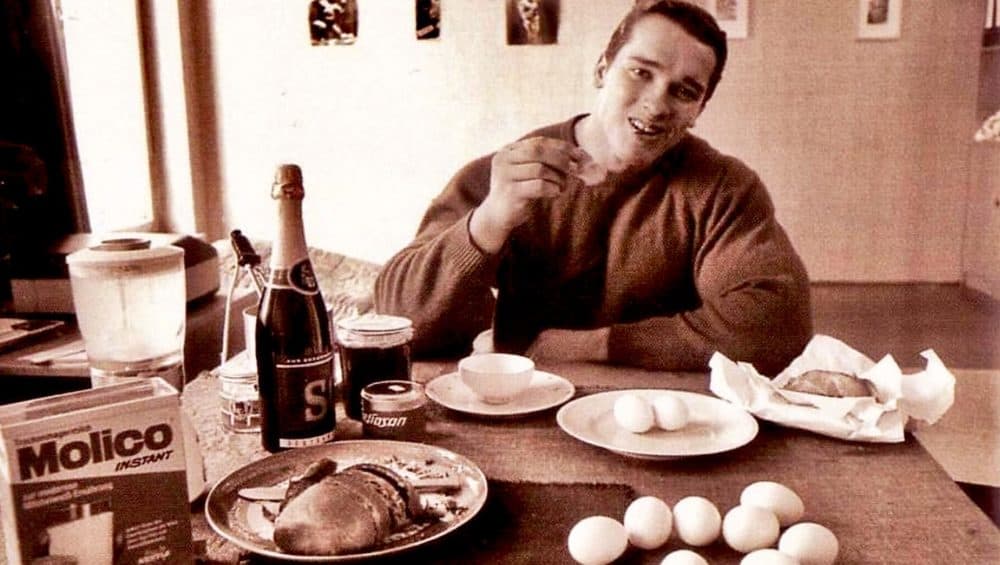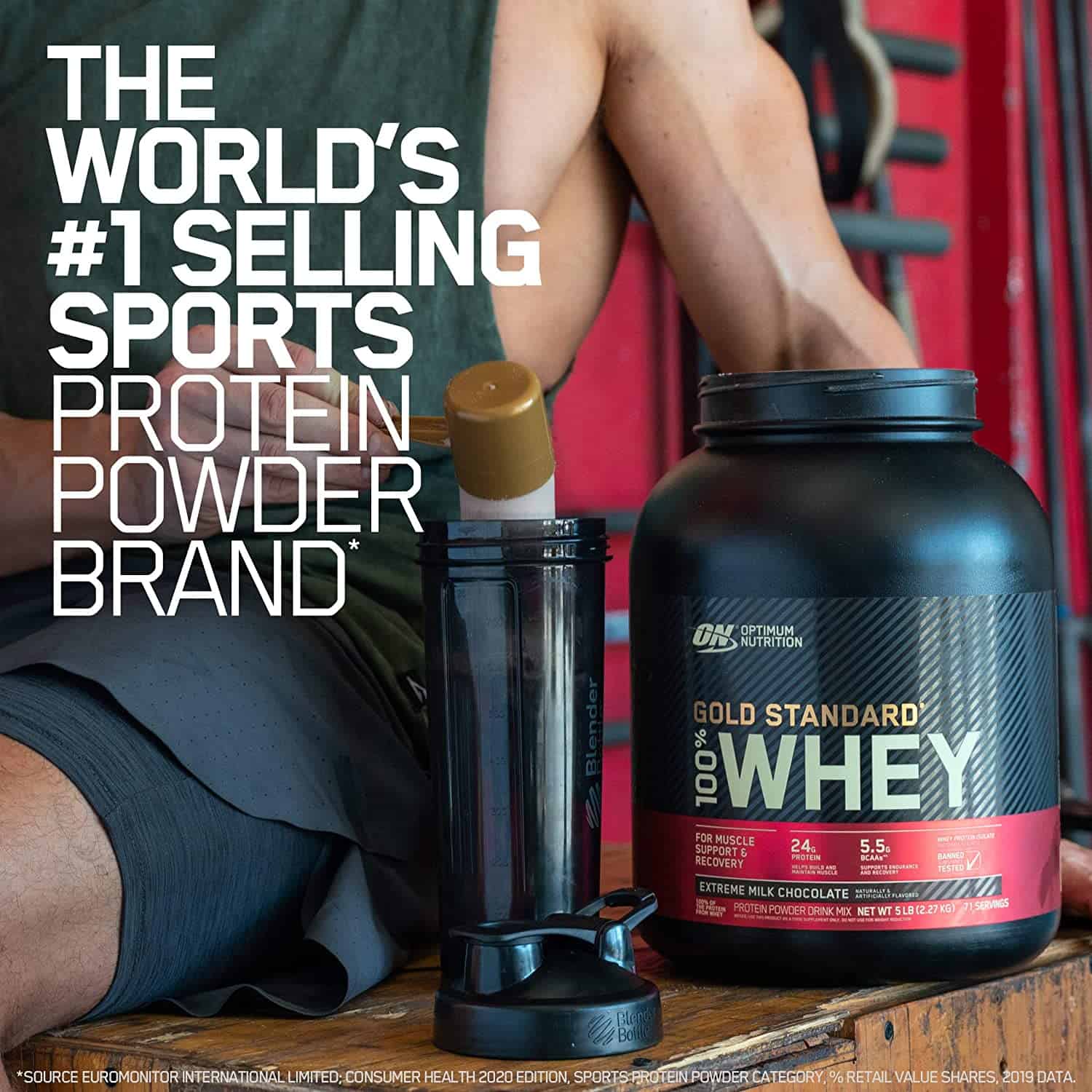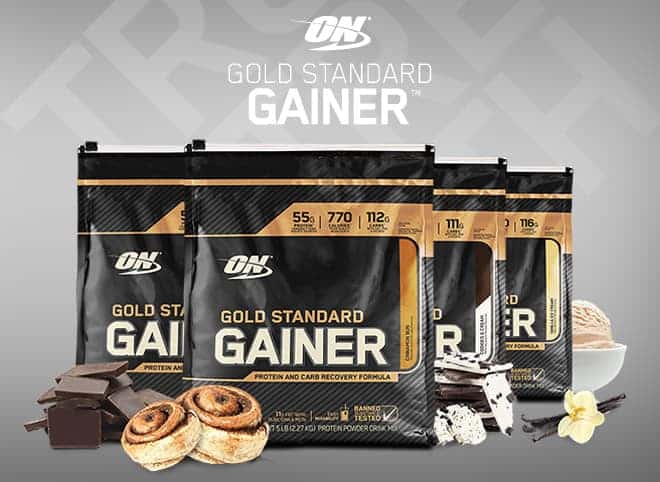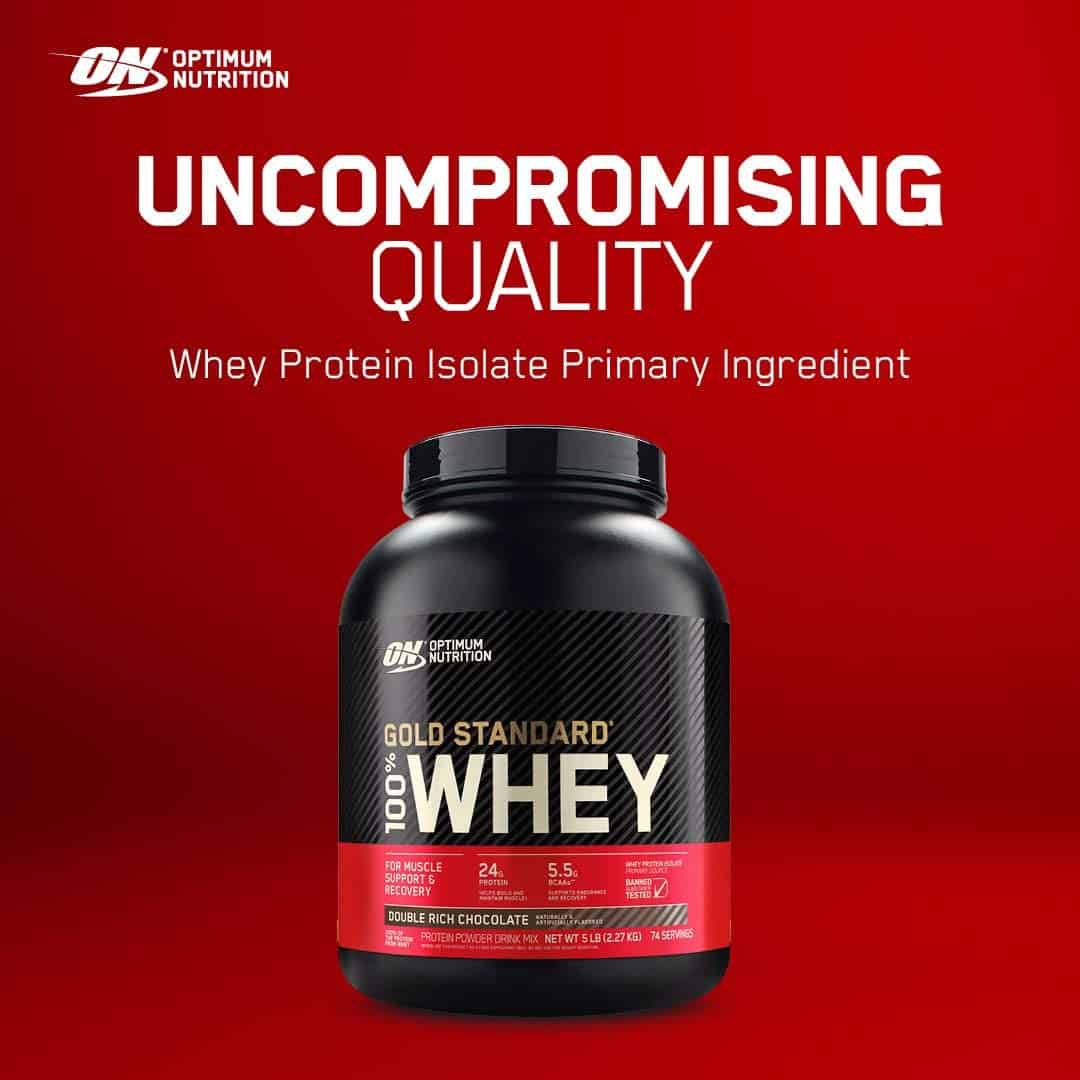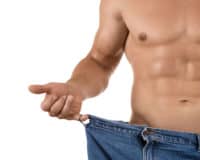Frustrated slim people trying to gain weight frequently feel as though they are consuming as much food as possible. When the scale does not increase, they surrender in defeat. However, more often than not, individuals just need to adopt a new way of eating in order to grow: a meal plan specifically designed for muscle building!
Muscle growth requires a diet that is high in protein and calories. However, keep in mind that following a muscle-building diet does not provide an excuse to eat anything in sight. Too many people load up on empty calories and low-quality carbs rather than increasing their intake of high-quality, nutrient-dense foods.
Rather than that, you’ll be more targeted with your nutrition, favouring high-quality, nutrient-dense carbs for fuel when your body requires it most—during your strenuous workouts—and increasing your fat intake at other meals to obtain additional calories. Consume this way and train vigorously, and you will grow!
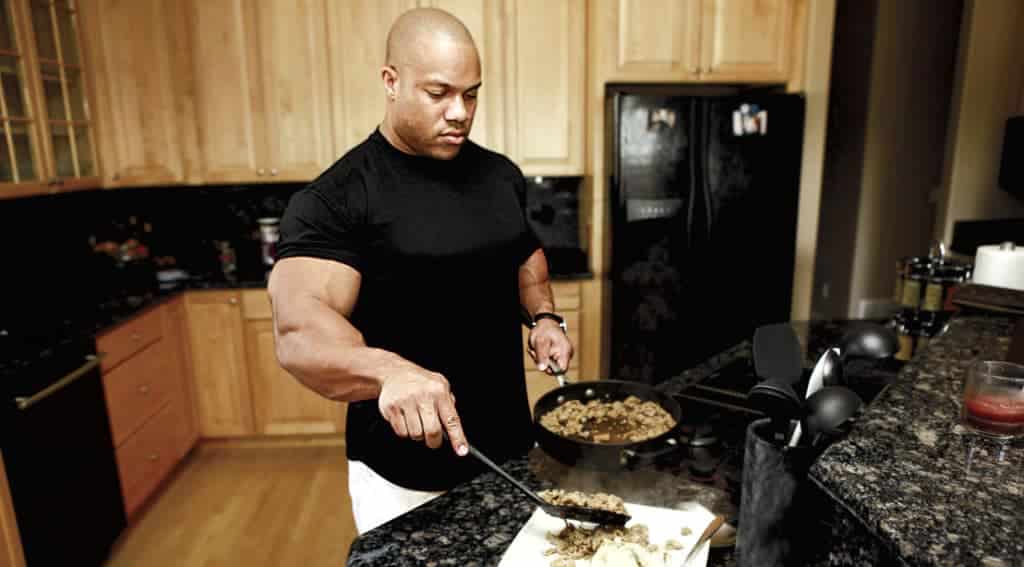
However, adhering to the proper diet is only half the battle. If you’re serious about muscle gain, be certain you’re following a well-designed programme tailored to that objective.
Supplements can also assist you in accelerating your muscle-building results once you’ve mastered your diet and workout.
The Muscle Building Meal Plan
Aim for approximately 3,000 calories, 300 grams carbohydrate, 225 grams protein, and 100 grams fat.
Take note that this strategy is based on a 150-pound man who trains in the afternoon. If your workouts are in the morning, simply rearrange your schedule such that you consume starchy carbs before to and immediately following your workout and then avoid them later in the day. If you weigh more or less than 150 pounds, you can also use this Link to calculate your daily calorie intake.
Many people who lift weights for sports, weightlifting competitions, bodybuilding, or to increase their level of fitness are lured to a bodybuilding diet in order to add muscle and maintain a low body fat percentage.
A basic bodybuilding diet is increasing your protein and calorie consumption overall and including strength training into your workouts on a regular basis. Diet and nutrition for weight training and bodybuilding are not dissimilar to a balanced diet rich in nutrient-dense foods.
The exception to this is a bodybuilding diet, which places a premium on quantity and timing of meals throughout the various phases of weight training. While many proponents of a bodybuilding diet also rely on dietary supplements to help them gain muscle, nutrition experts generally recommend receiving your nourishment from whole foods wherever feasible.
Those on a bodybuilding diet must ensure they consume enough carbohydrates to power their workouts. Without enough carbohydrates, your body begins metabolising muscle in order to convert glucose to energy.
The bodybuilding diet places a premium on lean protein to aid in muscle protection and growth. Additionally, it promotes the consumption of a variety of antioxidant-rich fruits and vegetables as well as nutrient-dense complex carbs.
Following this strategy requires the consumption of whole grains and the avoidance of processed flours and sweets. Refined carbohydrates are rapidly metabolised by the body and can cause a rapid rise in blood sugar and insulin levels.
While some individuals on a bodybuilding diet adhere to a strict dietary plan, this is not necessary for everyone. Depending on your goals, adopting a balanced diet and responding to your body’s natural hunger cues can help you gain muscle and burn fat.
However, if you’re interested in following a standard bodybuilding diet routine, here’s some additional nutrition advice for your workouts.
- Pre-exercise fuel: Consume some carbohydrates around 30 minutes before a training session.
- Refuel during cardio: If your workout includes cardio and lasts more than an hour at a moderate-to-high intensity level, you may need to refuel with gels or a sports drink during the session.
- Utilize a 3:1 ratio: Consume some protein and carbs soon following or within 30 minutes of the conclusion of your workout. Utilize a carbohydrate-to-protein ratio of 3:1.
- Limit your use of dietary supplements: Avoid excessive protein supplementation. The essential amount of high-quality protein can be obtained from lean chicken, fish, soy, skim milk, and a little bit of red meat. However, if you’re cutting, protein supplements may help you achieve your protein requirements if your caloric consumption has fallen.
- Consume healthy fats: Consume a balanced diet that is low in saturated fat and cholesterol and abundant in fruits, vegetables, legumes, whole grains, and high-quality monounsaturated and polyunsaturated fats (found in nuts, seeds, and oils).
- Consume plenty of liquids: Replenish the water lost by sweating. While beverages such as tea and coffee might be beneficial, drinking plenty of water will guarantee that you keep adequately hydrated.
What You Should Know
Individuals who exercise have varying macronutrient and calorie requirements, since the more energy required, the greater the macronutrient and calorie requirements. This is also true for recreational exercisers, but not always for those attempting to lose weight.
The bodybuilding diet is not recommended for those who are overweight, as the programme requires increased calorie consumption. Strength exercise, on the other hand, can be incorporated into a healthy weight loss regimen. When the body begins metabolising fat (catabolism) and building muscle (anabolism, as in “anabolic steroids”), weight exercise can assist in maintaining muscle mass while shedding fat.
For those trying to build muscle, the amount, speed, and definition of muscle building is mostly dictated by your training programme and frequency, as well as genetics and age. However, anyone, regardless of age, should be able to grow muscle and strength through weight training.
Proper nutrition is another critical component of the muscle-building process.
To gain muscle while maintaining a low body fat percentage, you could follow this standard bodybuilding diet protocol:
- Consume (about) 15% more: Expect a 2-pound muscle increase on average for males and a 1-pound muscle gain for women. Individual calorie, protein, and fat distribution adjustments are best made with the assistance of a sports dietitian and personal trainer. During the off-season, the calorie distribution should be 55%–60% carbohydrate, 25%–30% protein, and 15%–20% fat.
- Weight training: Begin a good weight training routine that targets all of the major muscular groups in the body, including the arms, legs, shoulders, chest, back, and abdominals. The additional energy consumed will aid in muscular building, as the activities encourage growth. Reduce the volume of aerobic activities and raise their intensity instead.
- Shred Fat: Protein intake should be between 1.2–1.8 grams per kilogramme of body weight, according to the majority of research. However, a regimen consisting of 15% calorie reduction, 25% carbohydrate reduction, and then boosting protein consumption to 1.8 to 2.7 grams per kilogram of body weight is not unusual and may produce superior outcomes.
Phases of Bulking and Cutting
A bodybuilding diet is divided into two phases: the bulking phase and the cutting phase. To preparation for competition, bodybuilders first increase their muscle mass and body fat by consuming more (bulking). Then they burn the fat, revealing the muscle (cutting).
Typically, during the building phase, followers increase their calorie intake by roughly 15%. They erase the 15% that was added and maintain a relatively low-fat diet of roughly 20% during the reducing phase.
Protein consumption should remain between 1.2 and 1.8 grams of protein per kilogram of bodyweight or greater during any period. However, when carbohydrate intake is reduced, an increase in protein intake is required to maintain muscle mass. Protein ranges from 1.8 to 2.7 grams of protein per kilogram of body weight.
Modifications to Carbohydrates
During the two phases of bodybuilding, carbohydrate ratios may be increased or decreased depending on your weight, muscle-building goals, energy levels, and carbohydrate cutting tolerance. Weightlifters typically do not burn the same amount of energy throughout their workouts as endurance athletes do. Marathon runners and triathletes may require between 7 and 12 grams of carbohydrate per kilogram of body weight each day.
On days with little exercise, err on the side of caution with carbohydrate guidelines. If you combine cardio and weight training, you’ll almost certainly require more.
Nutritionists and coaches in sports take eating extremely seriously, even more so when it comes to professional athletes. Even amateur athletes may optimise their exercises with adequate nutrition.
Meal time is critical to this. Weight trainers do better with six smaller meals a day with constant protein consumption of 20-30 grams per meal than with larger meals with higher protein intake.
Pre-workout Meals
Pre-exercise nutrition, whether for training or competition, is frequently recommended by sports nutritionists.
- Consume meals that are low in fat and fibre but high in protein and carbs. Fiber may and should be included in other meals to maintain a healthy diet.
- Experiment and determine your tolerance for various foods prior to and during exercise; this is critical because many of us have varying reactions to fiber-rich foods such as beans, milk, and various fruits.
- Eat your main meal between three and four hours before exercise to provide your body ample time to digest.
- Consume a smaller meal 30–60 minutes prior to exercising to ensure that you have sufficient energy for your activities. If this is not tolerated, consume food one to two hours prior to activity.
- Consume 1.5 to 3 cups of liquids within 20 to 30 minutes of activity, such as sports drinks and gels, protein shakes, or water.
- Avoid strenuous cardio based exercise following a meal to avoid digestive discomfort.
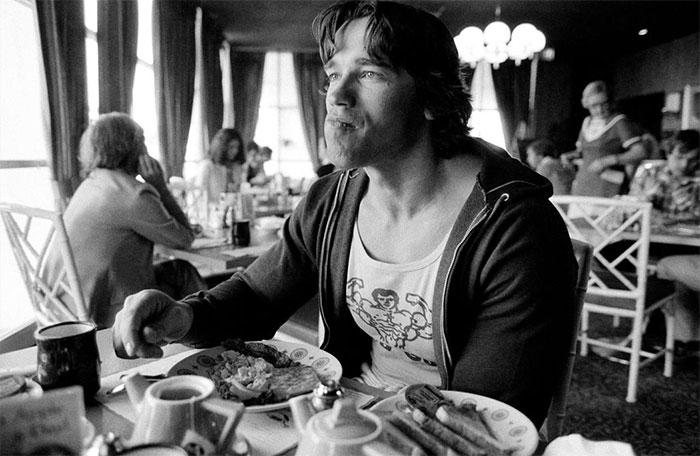
Consumption of Food During Exercise
Unless you’re doing extreme workouts lasting significantly longer than 60 to 90 minutes of intense cardio or strength-endurance weights, you usually won’t need anything else throughout a workout except water. If your exercise session lasts longer than 60–90 minutes, you’ll require carbohydrate and electrolytes, which can be found in a sports drink, gel, or bar.
Post-Exercise Nutrition
How you eat in order to recover from exercise is a critical element of exercise nutrition. Glucose, or glycogen, is the primary fuel source for athletes and exercisers. It is obtained through carbohydrate-containing foods and beverages. If you do not replenish adequately following each exercise, your muscle’s glycogen stores will remain exhausted and unprepared for the next workout.
This can result in long-term muscular fatigue and performance deterioration. Additionally, insufficient refuelling following your activity will prevent your muscles from receiving an anabolic surge that repairs and rebuilds.
Weight training consumes less glucose than higher intensity or longer duration aerobic activities such as track and endurance running and cycling. Nonetheless, it pays to maintain adequate glycogen stores if you want to perform at your best throughout exercise.
Carbohydrates are critical for this, especially immediately following exercise, at a ratio of 3 grammes carbs to 1 gramme protein. 17 fluid ounces flavoured low-fat milk; 1 cup fruit salad with 7 ounces flavoured yoghurt; or a big glass of nonfat milk with two slices of toast and honey or jam all meet these criteria (no butter).
Within 60 minutes of completing a weight exercise session, consume around 20 to 30 grammes of high-quality protein. The closer you consume protein to your workout, the better.
Protein Powder Supplements
Supplements have developed into a multibillion-dollar industry in the commercial weightlifting and bodybuilding industries.
9 While many weight trainees dramatically boost their protein consumption through drinks and supplements, particularly those containing whey protein, they sometimes lack expert guidance on the proper amount.
-
What is the secret of bodybuilding?
The main secret in training. The difference between a muscular, well-developed physique and the appearance of a guy who "worked out occasionally" lies in your applied training expertise. At first, I reasoned that going to the gym five or six times a week would ensure that I developed an exceptional physique.
-
What is the most important thing in bodybuilding?
Protein is essential for muscular growth, particularly for bodybuilders. Protein synthesis the conversion of amino acids to proteins for repair and rebuilding may occur at a sufficient rate only with an adequate protein intake.
Carbohydrates and healthy fats while adhering to their macronutrient requirements and training schedule.

